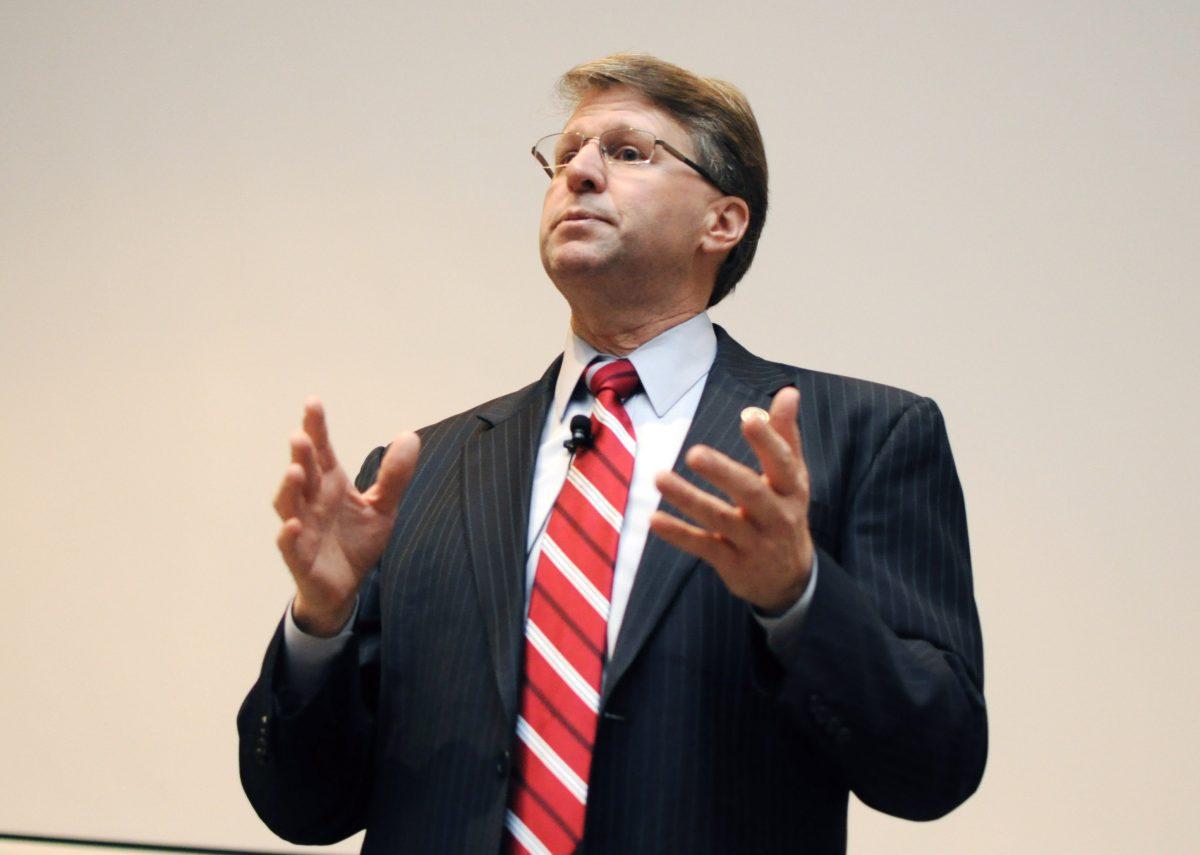An associate North Carolina State Supreme Court Justice visited campus Wednesday to discuss the rights that United States citizens are not using.
Mark Martin, senior associate justice of the North Carolina Supreme Court, was a guest lecturer for a Legal and Regulatory Environment class in Nelson Hall Wednesday morning.
Martin focused his lecture on the idea that Americans don’t use the rights they are granted by the United States Constitution, specifically concerning how trials by jury are an infrequent occurrence.
Students should participate in discussions with their peers and teachers about the Constitution to preserve the current jury system, according to Martin. Students should get involved by discussing which rights should be protected and also have less apathy for issues pertaining to rights.
Martin said trials by jury are not being used as often as they once were and people are not taking advantage of a jury made up of peers.
This idea is unique to the United States because we are the only nation that allows a jury made up of citizens.
“The jury system sets us apart,” Martin said. “What if you are accused of a crime and one judge is in front of that court room? Think about the bias, one person is deciding guilt or innocence.”
Martin also said he would rather take his chances in front of jury than a judge, which is an opportunity only Americans have.
Martin said he’s noticed juries have been used less frequently and plea bargains are becoming the normal procedure in criminal cases.
“The system is under attack and not used as often as is used to be,” Martin said. “Somebody is charged with a more serious crime but in order to not take court time…the charges are eventually resolved administratively.”
Martin also cited too few court rooms and insufficient funds to bring in jurors as reasons for a decline in jury trials.
Martin emphasized the jury may not exist in the future.
He said that the preservation of the jury system is in the hands of groups, like N.C. State students, that are active in the community.
Citizens should think about the future of the system before they are in situation where they will depend on it, according to Martin.
The lecture concluded with questions from the audience that involved controversial topics like gay marriage and the legalization of marijuana.
Briana Sauer, a senior in accounting, said Martin’s speech added a human element to the legal system because it matched a face to the North Carolina judiciary.
“Having him speak to us and have the potential for interaction humanizes it and it makes the law more tangible,” Sauer said.








